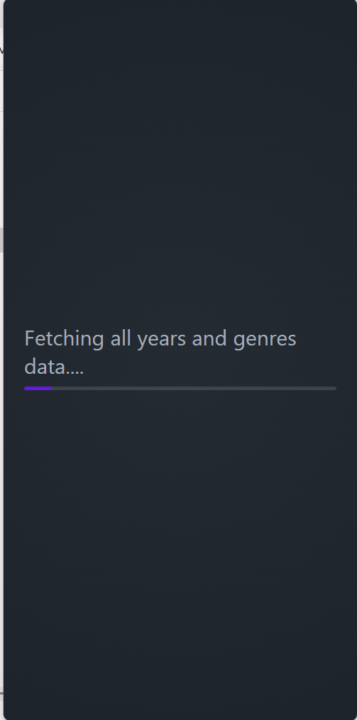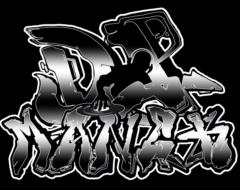Activity
Mon
Wed
Fri
Sun
Mar
Apr
May
Jun
Jul
Aug
Sep
Oct
Nov
Dec
Jan
Feb
What is this?
Less
More
Memberships
AIU - CLONE MY INFLUENCER
1k members • Free
Business With The Bennett's
322 members • $15/m
Elevate DJ Academy
310 members • Free
Improvifi PROgram
1k members • Free
BuiltRightScaling.com
665 members • Free
THP Jump Training
79.6k members • Free
SF
Smart Finances for Biz Owners
37 members • Free
Profit School - CFA
34 members • Free
MTaRmy
3.2k members • $20/m
12 contributions to Serato Music Library Mastery
Searching Indefinitely!
Must be searching all the data in the world lol... or do i need to update the software?

MLT Organize vs MLT Years & Genres
Am I missing something? I purchased the MLT Y&G which worked pretty well; a little glitchy, and some popular songs that were missing genre and/or year didn't get a hit. No big deal, I understand MLT Y&G is a beta and bugs could arise. Anyway, after signing up here I see others talking about MLT Organize, what is it exactly...been busy recently I haven't had a chance to go searching for an answer but, if anyone can point me in the right direction it would be appreciated!
1 like • Mar '25
MLT Years & Genres (Y&G) is specifically designed to populate the year and genre metadata for your tracks. It scans your library and fills in missing details, but since it's still in beta, some tracks might not get matched perfectly. MLT Organize, on the other hand, is a broader tool that restructures and organizes your music library into neatly arranged folders. It helps you start with a clean and well-structured collection, making it easier to manage your music files. Think of it this way: - MLT Y&G = Adds metadata (year & genre) to your tracks - MLT Organize = Cleans up and organizes your entire library into folders
Serato Import Workflow (Work In Progress)
1️⃣ Download Music → (Auto-save in /New Music/) 2️⃣ MusicBrainz Picard → (Auto-tag Artist, Title, Year, Album, Cover Art) 3️⃣ Music Library Tools (MLT) → (Auto-clean genres, remove duplicates, sort by folder) 4️⃣ Mixed In Key → (Auto-analyze Key, BPM, Energy, Cue Points) 5️⃣ Serato Import → (Auto-create Smart Crates, auto-sort into sets) 6️⃣ Verify Cue Points & Adjust Colors → (Manual Fine-Tuning) 7️⃣ Move to Permanent Library → (Within Serato) 8️⃣ Backup → (Auto-sync to Google Drive & External HDD) ❓ Potential Upgrade for MLT: If MLT adds a database-based metadata fetcher (like MusicBrainz but DJ-focused), it would be the ultimate tagging tool. Do we need a 4th software for fetching Artist - Title corrections, or can MLT integrate this? I am really trying to cut back on different tools and looking to just use one main tool or just (MLT) for everything versus jumping from tool to tool 🔥 If MLT becomes one all-in-one software, it would be the best option for DJs because: ✅ It corrects & standardizes metadata (without relying on crowdsourced errors). ✅ It removes duplicates automatically (so DJs don’t waste time cleaning up). ✅ It sorts music into folders intelligently (so Serato crates stay organized). ✅ It could become the first DJ-specific tagging tool instead of just another metadata scraper. 💡 What do you think? Should MLT integrate a title/artist auto-correction feature to fully replace MusicBrainz? Drop your thoughts below! 👇🔥
MLT Organize Beta Feedback
MLT Organize Latest Findings & Feedback: Recent Scan (7,000+ Songs) Results: - Everything was successfully organized with the MLT Organize tool. - 694 tracks were missing genres (No Genre) after running the organizer. - The years were hit or miss, with some tracks not getting a year assigned. Planned Next Steps: - I will go back through the 694 tracks and re-run the MLT Years and Genres software on them. - Running the metadata software multiple times (once for years, once for genres) tends to produce better accuracy, though some manual editing is still required. Would love to hear if others have seen similar results and if there are any plans for improvements to metadata retrieval. Looking forward to future refinements! 🚀
Multiple Genres
Evening Community. I’ve made some great progress on improving the accuracy for Genre and Years, and I’m excited to share the updates with you. I have a quick question: If a genre is a mix of multiple genres (e.g., Hip-Hop, R&B, Pop), how would you prefer it to be handled? 1. Set as one of the genres (e.g., Hip-Hop) 2. Set as a combined genre (e.g., Hip-Hop/R&B/Pop) 3. Leave as "No Genre" since it can't be decide I'd love to hear your thoughts! Thanks in advance.
3 likes • Feb '25
@Shawn Storm Possible Approaches for Multi-Genre Labeling: 1. Primary Genre + Subgenre (Organized Approach) - The main genre is the dominant one, and the subgenre gives more context. - Example format: Primary Genre (Subgenre)R&B (Hip-Hop) → R&B song with Hip-Hop influencesHip-Hop (Trap) → Hip-Hop song with a Trap vibeDancehall (Reggaeton) → Dancehall track with Reggaeton elementsPop (Afrobeats) → Pop song with Afrobeats influence - ✅ Pros: Keeps it structured, easier to search and filter, and prevents excessive multi-genre clutter. 2. Hybrid Genre Naming (Combination Approach) - Tags the top two or three genres together. - Example: Hip-Hop/R&B Afrobeats/Pop Reggaeton/Dancehall - ✅ Pros: Provides more details, useful for tracks that truly blend genres. - ❌ Cons: Can get messy if too many genres are combined. 3. Context-Based Genre Tagging (Collab vs. Solo) - The genre depends on the artist and collaboration style. - Example:Chris Brown – R&B (Solo tracks)Chris Brown ft. Lil Wayne – Hip-Hop/R&B (Collab with a rapper)Drake – Hip-Hop (Rap-heavy track)Drake – R&B (Hip-Hop) (Melodic R&B track with rap elements) - ✅ Pros: Makes sense when an artist fluctuates between genres based on the track. 4. Weighted Genre Assignment (Detailed Approach) - Assigns percentages based on influence. - Example:Hip-Hop (60%) / R&B (40%)Dancehall (70%) / Reggae (30%) - ✅ Pros: Great for a highly detailed approach. - ❌ Cons: Might be overkill for casual organization. Best Option? Right now, Primary Genre + Subgenre seems to be the best balance of structure and flexibility. It’s clean, easy to filter, and avoids cluttered tags. If a subgenre doesn’t apply, the track simply stays under its main genre. I'm a fan of the Hybrid Approach but If you're working with software, the Hybrid Genre Naming (Combination Approach) is a very practical approach, while the Weighted Genre Assignment would be useful if a tool could automate it.
1-10 of 12
Active 24d ago
Joined Jan 30, 2025
Powered by



